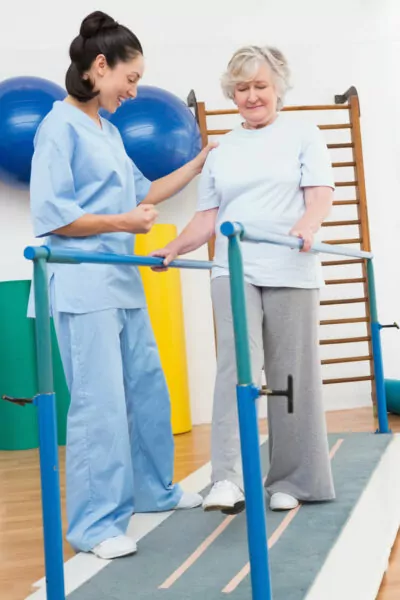
This article originally appeared in the Summer 2025 issue of On The Level.
Summary
Many people who experience dizziness, vertigo, or balance problems also struggle with mental health issues like anxiety and depression. This study looked at 170 people who were referred to vestibular physical therapy to find out whether those who reported having trouble with everyday physical tasks were also more likely to feel anxious or depressed.
The researchers used a tool called PROMIS (Patient-Reported Outcomes Measurement Information System), which helps measure how people feel physically and mentally. They collected scores for physical function, anxiety, and depression from each participant.
key findings
Over half of the patients reported higher-than-normal anxiety, and about 42% reported higher-than-normal depression.
Those who felt they had poor physical function were:
- 5 times more likely to have anxiety.
- 3 times more likely to have depression.
This connection was especially strong in patients with:
- Benign Paroxysmal Positional Vertigo (BPPV) – 10 times more likely to report anxiety if they had trouble with physical function.
- Unilateral Vestibular Hypofunction (UVH) – 10 times more likely to report both anxiety and depression if physical function was impaired.
Older adults were slightly less likely to report anxiety than younger people.
Why This Matters
This study shows that when people have vestibular disorders and feel physically limited, it can take a toll on their mental health. It highlights how important it is for physical therapists and healthcare providers to not only treat balance problems but also screen for anxiety and depression.
The authors encourage physical therapists to work alongside mental health professionals so patients can receive complete care—both physical and emotional. Treatments like cognitive-behavioral therapy (CBT), when combined with vestibular rehab, may help patients recover more fully.
Bottom Line
If you’re dealing with dizziness or balance problems and also feel anxious or depressed, you’re not alone. These issues are closely connected. Talk to your healthcare provider about your physical and emotional health—both deserve attention and support.
Summary edited by Erin Anson
Source: McConnell, C., Allen, P., & Anson, E. (2025). Patient-Reported Outcomes Measurement Information System (PROMIS) outcomes: Higher odds of adverse mental health when physical function is impaired. Journal of Vestibular Research, 0(0), 1–8. https://doi.org/10.1177/09574271251335958
